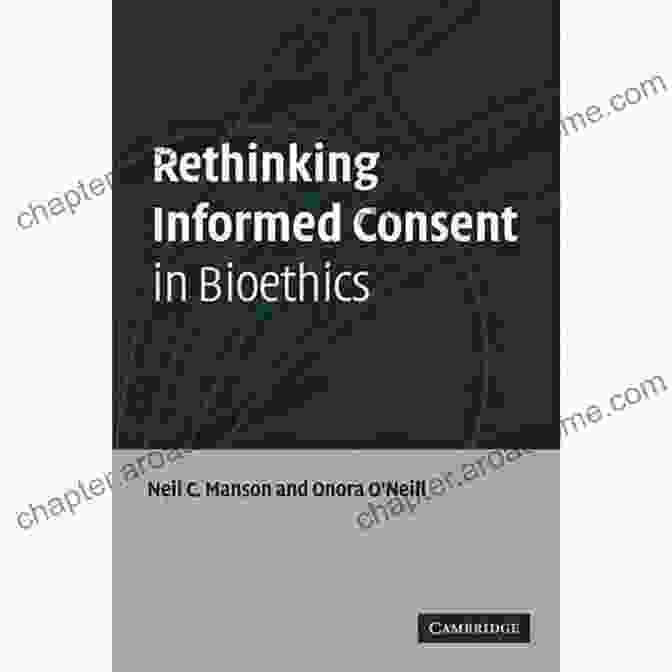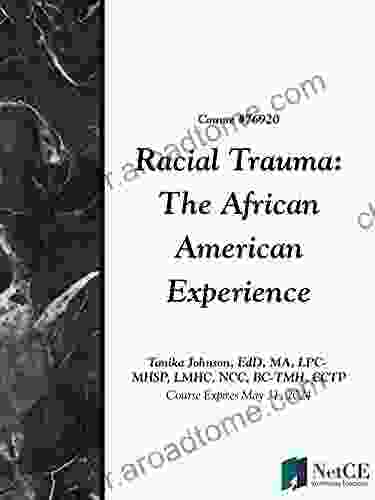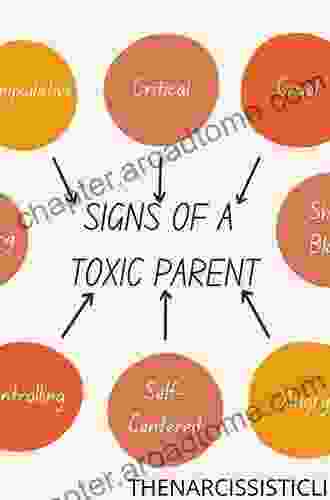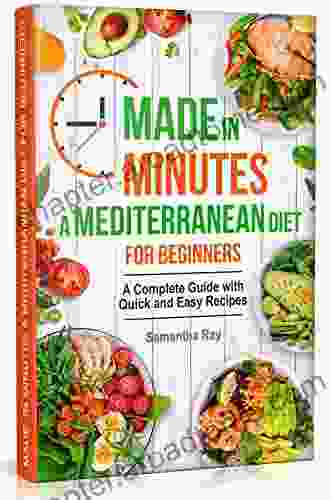Rethinking Informed Consent in Bioethics: A Comprehensive Exploration


Informed consent is a fundamental principle in bioethics that ensures the ethical conduct of medical research and clinical practice. It requires that individuals have sufficient understanding of the risks and benefits of a medical intervention and are able to make informed decisions about their own healthcare.
4.9 out of 5
| Language | : | English |
| File size | : | 2761 KB |
| Screen Reader | : | Supported |
| Print length | : | 228 pages |
Historical Foundations of Informed Consent
The concept of informed consent emerged in the early 20th century as a response to unethical medical practices that occurred during the World War II era. The most infamous example of these practices was the Tuskegee Syphilis Experiment, in which African American men with syphilis were denied treatment so that researchers could study the progression of the disease.
In 1957, the Nuremberg Code was established as a set of ethical guidelines for medical research. The code emphasized the importance of informed consent and required that researchers provide potential participants with full disclosure of the risks and benefits of their research.
Ethical Principles of Informed Consent
Informed consent is based on several key ethical principles, including:
- Respect for Persons: Individuals have the right to make decisions about their own healthcare and to be treated with respect.
- Beneficence: Healthcare professionals have an ethical obligation to act in the best interests of their patients.
- Non-maleficence: Healthcare professionals have an ethical obligation to do no harm.
- Autonomy: Individuals have the right to make their own decisions about their healthcare, even if those decisions may not be in their best interests.
Challenges in Applying Informed Consent
While informed consent is a fundamental principle in bioethics, its application in medical research and clinical practice can be challenging.
1. Complexity of Medical Information
Medical information can be complex and difficult to understand, even for healthcare professionals. This can make it challenging for individuals to make informed decisions about their healthcare.
2. Emotional and Cognitive Factors
Individuals may be in emotional or cognitive states that can affect their ability to make informed decisions. For example, individuals who are facing serious health conditions may be more likely to agree to a treatment without fully understanding the risks.
3. Power Imbalances
Power imbalances between healthcare professionals and patients can make it difficult for individuals to feel comfortable asking questions or expressing their concerns.
Contemporary Approaches to Informed Consent
In recent years, there have been several contemporary approaches that have been developed to address the challenges in applying informed consent.
1. Shared Decision-Making
Shared decision-making is an approach that involves patients and healthcare professionals working together to make decisions about healthcare.
2. Patient-Centered Communication
Patient-centered communication involves using clear and concise language that is tailored to the patient's individual needs.
3. Decision Aids
Decision aids are tools that can help patients understand the risks and benefits of different treatment options.
Informed consent is a fundamental principle in bioethics that ensures the ethical conduct of medical research and clinical practice. However, its application can be challenging due to the complexity of medical information, emotional and cognitive factors, and power imbalances. Contemporary approaches such as shared decision-making, patient-centered communication, and decision aids can help to address these challenges and improve patient engagement in healthcare decision-making.
4.9 out of 5
| Language | : | English |
| File size | : | 2761 KB |
| Screen Reader | : | Supported |
| Print length | : | 228 pages |
Do you want to contribute by writing guest posts on this blog?
Please contact us and send us a resume of previous articles that you have written.
 Book
Book Novel
Novel Page
Page Chapter
Chapter Text
Text Story
Story Genre
Genre Reader
Reader Library
Library Paperback
Paperback E-book
E-book Magazine
Magazine Newspaper
Newspaper Paragraph
Paragraph Sentence
Sentence Bookmark
Bookmark Shelf
Shelf Glossary
Glossary Bibliography
Bibliography Foreword
Foreword Preface
Preface Synopsis
Synopsis Annotation
Annotation Footnote
Footnote Manuscript
Manuscript Scroll
Scroll Codex
Codex Tome
Tome Bestseller
Bestseller Classics
Classics Library card
Library card Narrative
Narrative Biography
Biography Autobiography
Autobiography Memoir
Memoir Reference
Reference Encyclopedia
Encyclopedia Paula Hammond
Paula Hammond Warwick F Vincent
Warwick F Vincent Valerie Love
Valerie Love Mohammed Mouhssine
Mohammed Mouhssine Naielah Ackbarali
Naielah Ackbarali Nev Davies
Nev Davies Patricia Crowther
Patricia Crowther Shelley Buck
Shelley Buck Shelley Parker Chan
Shelley Parker Chan Willem Lammers
Willem Lammers Michael Luck
Michael Luck Nicolas Sireau
Nicolas Sireau Mitch Horowitz
Mitch Horowitz National Association Of City Transportation...
National Association Of City Transportation... Gerald M Weinberg
Gerald M Weinberg Oakley Graham
Oakley Graham Monica Huerta
Monica Huerta Ronald Boyd Macmillan
Ronald Boyd Macmillan Myra Schneider
Myra Schneider Nolan Dalla
Nolan Dalla
Light bulbAdvertise smarter! Our strategic ad space ensures maximum exposure. Reserve your spot today!

 Vladimir NabokovThe Atkins Diet 2024: The Ultimate Restaurant and Fast Food Restaurant...
Vladimir NabokovThe Atkins Diet 2024: The Ultimate Restaurant and Fast Food Restaurant...
 Johnny TurnerThe Power of Stopping at Nothing: Unlock Your True Potential and Manifest...
Johnny TurnerThe Power of Stopping at Nothing: Unlock Your True Potential and Manifest... Ross NelsonFollow ·6.9k
Ross NelsonFollow ·6.9k Anthony WellsFollow ·2.5k
Anthony WellsFollow ·2.5k Jayson PowellFollow ·5.7k
Jayson PowellFollow ·5.7k W.B. YeatsFollow ·10.7k
W.B. YeatsFollow ·10.7k Neal WardFollow ·2.7k
Neal WardFollow ·2.7k Felix HayesFollow ·15.1k
Felix HayesFollow ·15.1k Jerry HayesFollow ·7k
Jerry HayesFollow ·7k Beau CarterFollow ·4k
Beau CarterFollow ·4k

 Samuel Beckett
Samuel BeckettPortrait of the Plague Doctor: A Chilling Tale of Fear...
Prologue: A...

 Elliott Carter
Elliott CarterTrends in Modeling and Simulation Studies in...
Unveiling the Convergence of...

 Natsume Sōseki
Natsume SōsekiCells For Kids: Science For Children
Unlock the Microscopic...

 Anthony Wells
Anthony WellsUnlock the Power of Understanding: Embrace the African...
Embark on a Journey of Truth,...

 Forrest Reed
Forrest ReedBreaking Free: Healing from Toxic Relationships Between...
Are you struggling...
4.9 out of 5
| Language | : | English |
| File size | : | 2761 KB |
| Screen Reader | : | Supported |
| Print length | : | 228 pages |










